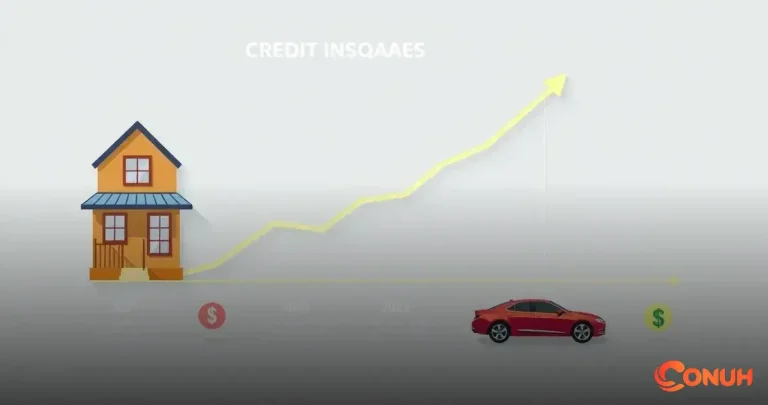ADVERTISEMENT
Understanding credit scores is vital for your financial journey. They influence loan approvals, interest rates, and even rental agreements. A good credit score can save you money, while a poor one can limit your options.
Many people underestimate the power of a credit score. Knowing where you stand can empower you to make informed financial decisions. Your score reflects your creditworthiness based on past financial behaviour.
ADVERTISEMENT
Keep reading to discover how credit scores work and what you can do to improve yours!
What is a Credit Score?
A credit score is a number that shows how likely you are to repay borrowed money. It is an important part of your financial health. Lenders use your credit score to decide if they should give you a loan or credit card. The score usually ranges from 300 to 850, with higher numbers showing better creditworthiness.
Credit scores are made up of different factors. These include your payment history, how much debt you have, and the length of your credit history. Each of these factors helps lenders understand your borrowing habits. A good score can help you get lower interest rates on loans, while a poor score can make borrowing more expensive.
Knowing your credit score is essential for managing your finances. It can guide you when you want to buy a car, get a mortgage, or even rent an apartment. Understanding credit scores helps you make better financial choices that lead to a healthier financial future.
Why Credit Scores Matter
Credit scores matter because they help lenders assess your financial responsibility. When you apply for a loan or credit, your credit score shows how likely you are to pay back the money. A high score can lead to lower interest rates, making borrowing more affordable. This is important for big purchases like houses or cars, where every bit of interest saved can add up.
Having a good credit score also affects other areas of your life. For instance, landlords may check your credit score before renting to you. A better score can increase your chances of being approved for a rental application. This helps you secure a good place to live when needed.
Additionally, credit scores can impact your insurance rates. Many insurance companies look at your score when determining premiums. A higher score may lead to lower costs for auto or home insurance. Understanding why credit scores matter can motivate you to maintain a healthy financial profile.
How Credit Scores are Calculated

Credit scores are calculated based on several important factors. The largest part of your score comes from your payment history, which shows if you pay your bills on time. Late payments can hurt your score, while consistent, timely payments can boost it significantly.
Your credit utilisation is the next key factor. This number tells lenders how much of your available credit you are using. It’s best to keep this number low. Ideally, you should aim to use less than 30% of your total credit limit. Keeping your balances low can really help improve your score.
Other factors include the length of your credit history and the types of credit you have. A longer credit history typically leads to a higher score, as it shows lenders you have experience managing credit. Having different types of credit, such as credit cards and loans, can also positively influence your score. Understanding how these elements work can help you take control of your credit score.
Factors Affecting Credit Scores
Several factors can affect your credit score. One of the most significant factors is your payment history. If you pay your bills on time, your score will benefit. However, any missed or late payments can harm your score and stay on your record for several years.
Another crucial factor is your credit utilisation ratio. This ratio shows how much of your available credit you are using. If you regularly use a large percentage of your credit limit, it can signal to lenders that you might be relying too heavily on credit. It is best to keep this ratio low to maintain a healthy score.
The length of your credit history is also important. The longer your accounts have been open, the better it can be for your score. Additionally, having a variety of credit types, such as loans and credit cards, can positively impact your score. Understanding these factors can help you manage your credit more effectively.
Improving Your Credit Score
Improving your credit score is a step-by-step process that requires attention and care. One of the first things you can do is make sure to pay your bills on time. Late payments can hurt your score significantly. Set reminders on your phone or automate payments to help you stay on track.
Another way to raise your score is by lowering your credit utilisation ratio. Try to keep your credit card balances below 30% of your total limit. If possible, pay off your balances in full each month. This shows lenders that you can responsibly manage credit, which can positively impact your score.
Finally, review your credit report regularly. Check for errors or signs of fraud, as these can negatively affect your score. If you find any mistakes, report them immediately to have them corrected. Taking these steps consistently can lead to gradual improvements in your credit score, helping you achieve better financial opportunities.
Common Myths About Credit Scores

Many people believe that checking your own credit score will lower it. This is a common myth. When you check your own score, it’s called a “soft inquiry” and does not affect your credit at all. In fact, regularly checking your score can help you keep track of your financial health and identify areas for improvement.
Another myth is that you must carry a balance on your credit cards to improve your score. This is not true. Paying off your balance in full each month shows lenders that you can manage credit responsibly. It also helps you avoid paying interest, making it a better financial choice.
Lastly, some think that having no credit history is better than having a poor credit score. However, not having a credit history can make it hard to get loans or credit cards, as lenders like to see a record of responsible borrowing. Building a good credit history over time is essential for financial success.
Understanding Credit Scores
What is a credit score?
A credit score is like a report card for your financial behaviour that helps lenders decide if they can trust you to pay back the money you borrow.
What factors influence my credit score?
Your credit score is influenced by factors such as your payment history, amount of debt, and the length of your credit history.
How can I improve my credit score?
Improving your credit score takes time but is achievable by paying your bills on time, keeping credit card balances low, and checking your credit reports regularly.







